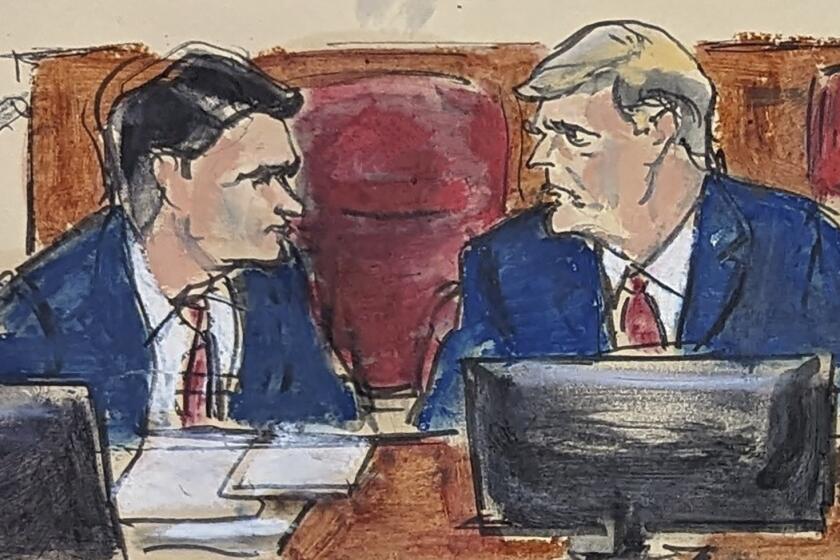For Bush’s sedation, it’s President Cheney
President Bush will undergo a routine colonoscopy today and Vice President Dick Cheney will hold the powers of the presidency during the roughly 2 1/2 hours Bush is under the effects of anesthesia, the White House said Friday.
It will be the second time Bush has signed over to Cheney the responsibilities of acting president by invoking the 25th Amendment. The first time was five years ago, for the same procedure.
Press Secretary Tony Snow said the vice president would be at his private home in St. Michaels, Md., on the Chesapeake Bay, about 30 miles east of Washington.
Snow declined to say exactly when the procedure and power transfer would occur.
Snow said the examination would be conducted at the presidential retreat at Camp David, Md., as it was in 2002.
Two polyps were removed when Bush underwent the procedure in 1998 and 1999, and it was recommended that he have a colonoscopy every five years, Snow said.
“Although no polyps were noted in the exam in 2002, age and history would suggest that there’s a reasonable chance that polyps will be noted this time,” said Snow, who is undergoing treatment for colon cancer.
“If so, they’ll be removed and evaluated microscopically,” Snow said.
Under the Constitution’s 25th Amendment, enacted in 1967, the president can hand the responsibilities of his office to the vice president, who serves as acting president.
The president must notify the House speaker and the president pro tem of the Senate in writing when he transfers power and when he resumes it.
The amendment has been invoked only once before Bush: when President Reagan had colon surgery in 1985.
It was not invoked when Reagan was shot in 1981 and underwent more than three hours of surgery.
Colonoscopies are used to examine the colon, a section of the large intestine, for polyps and other abnormalities.
The procedure, which is generally performed while the patient is sedated, involves the insertion of a flexible fiber-optic scope through the rectum to allow doctors to see the lining of the colon on a monitor.
Doctors consider the examination an important precaution in preventing colon cancer or detecting it in its early stages.
Snow said that the test results were expected within 48 to 72 hours and would be announced.
More to Read
Get the L.A. Times Politics newsletter
Deeply reported insights into legislation, politics and policy from Sacramento, Washington and beyond. In your inbox three times per week.
You may occasionally receive promotional content from the Los Angeles Times.






